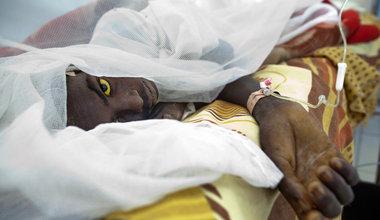Two things that are easy to do today are 1) mass produce plastic items and 2) ship things around the world.
But, somehow, there's a syringe shortage taking place in West Africa that's halted its much-needed yellow fever vaccination program. The areas of the most imminent concern are Angola and Democratic Republic of Congo (DRC.) In Angola, there are thousands of cases and hundreds of deaths. The crisis has moved into the DRC, and as it settles into huge cities like Kinshasa, with a population of 12 million people -- 3.5 million more people than in New York City -- it is expected to become at best an epidemic, and potentially a global health crisis.
There has been a growing concern over the amount of vaccine available. However, health officials have found a solution to that, and are planning to start the process of "fractional dosing" or giving each person a fraction of a normal dose of vaccine, in order to stretch the amount of vaccine that's available. Because the yellow fever vaccine is so good, cutting it down in this way does not diminish its effectiveness.
But, there is a new problem: there are no syringes. Although I have never bought syringes, it takes about one minute to find out that I can purchase 100 syringes on Amazon for $9 and have them delivered to me in two days. So, in order to vaccinate the entire city of Kinshasa, the cost would be roughly $1,080,000 million. That's the price of saving an entire city from yellow fever and potentially stopping its spread into other parts of West Africa.
The International Federation of Red Cross and Red Crescents Societies (IFRC) recently made an emergency appeal for 1.4 million Swiss franc to help in the response.
Goodness, I hope that they get it. Because, this is simply unacceptable. It's not like they're asking for 10 times that amount to send a spacecraft 540 million miles across the solar system. (Oh, right -- we just did that.)




